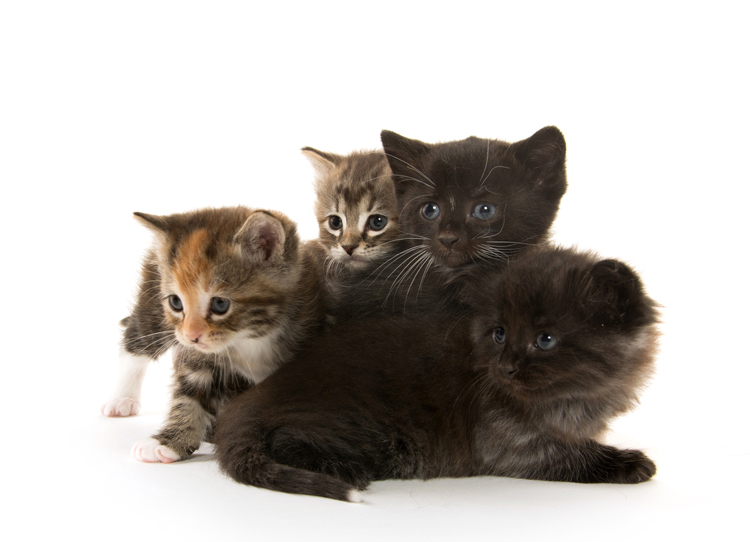Pick of the Litter

 Now that you have decided you can commit the time and effort involved in owning a kitten, how do you choose one? Don’t be swept up by their irresistible cuddly appearance – there are many important factors to consider!
Now that you have decided you can commit the time and effort involved in owning a kitten, how do you choose one? Don’t be swept up by their irresistible cuddly appearance – there are many important factors to consider!
Kittens should be at least eight weeks of age, and some even suggest 12 weeks of age before adoption. Kittens need a longer period of time with their mother and siblings to help them learn normal and acceptable behaviours.
Observe the whole family
If possible, it is best to choose a kitten from a litter. Observing the interactions between the babies and the personality of the mother (and father, if possible) may help you choose a kitten with the traits you desire. Though friendly parents may have timid or aggressive kittens if they are not socialised properly, your chance of having a friendly kitten will increase if the parents get along well with people. If the kittens sense fear of people in their mother, they are more apt to be fearful, too.
Early socialisation
How and when the kitten was handled from birth has a tremendous impact on the development of the kitten. Kittens who are gently handled multiple times a day, and who are exposed to many different people and other animals while they are two to eight weeks of age, are more likely to be friendly and well-adjusted, and generally get along better with people and other animals. Kittens who did not have a lot of human or other animal contact during this period, or who are mistreated or played with roughly, may be more timid or aggressive.
If possible, find a litter that has been in a home environment, and used to the many smells, sights, and sounds that are common in a home. If kittens are exposed to vacuum cleaners, kitchen appliances, and other items in the house that are noisy when they are two to eight weeks of age, they will generally be less fearful of them than those who are not exposed until they are older.
Hand-reared or orphan cats
Kittens who do not grow up with their mother or siblings are more likely to have behaviour problems as they grow older. By living as a family, kittens are more subject to frustration and how to properly cope with it, for example, when their mother gets up when they want to nurse, or a sibling bothers them when they want to sleep. In a family, they learn guidelines as to what is acceptable behaviour and what is not. They soon find out that biting and scratching is not tolerated. If hand-reared by people, kittens are less likely to develop inhibitions against these behaviours and are more prone to displaying them.
A winning personality!
In selecting a specific kitten, watch how the kittens interact with each other. A kitten should be playful, but not too aggressive. Avoid kittens who hide in the corner or appear to bully their siblings. Kittens should be confident, inquisitive, and not reluctant to come to you. Kittens who hiss or hide when approached by humans will be much more difficult to raise into friendly cats. The kitten should not cower or show fear when petted on his head.
Kittens should readily accept playing with you. Take a string along and drag it on the floor. Well-adjusted and healthy kittens should eagerly pounce on it and want to play. Realise, however, if the kittens have just had a boisterous game of tag or wrestling, they may be tired. Kittens are often either very active or sleeping, and not much in between!








